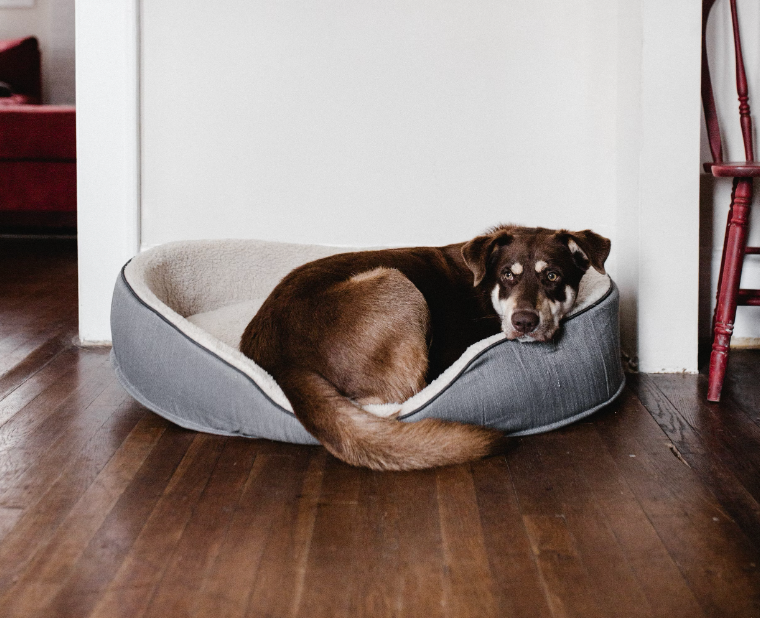Bringing home a new puppy is a joy, but when bedtime rolls around, crate training can be a real challenge. If your puppy is refusing to sleep in its crate, don’t worry—you’re not alone! This post will cover strategies to help you and your puppy feel more at ease when it comes to crate time.

1. Make the Crate a Cozy Haven
To encourage your puppy to embrace its crate, create a space that feels safe and inviting. You can:
- Add a soft, warm blanket or dog bed inside.
- Include a toy or chew to keep them occupied.
- Make sure the crate is the right size—too large and it might feel overwhelming; too small and it could be uncomfortable.
2. Introduce the Crate Slowly
Rushing the crate training process may cause anxiety for your puppy. Instead, start by letting them explore the crate at their own pace. Keep the door open during the day so they can enter and exit freely, and associate the crate with positive experiences like treats, praise, or feeding times.
3. Establish a Routine
Puppies thrive on routine, and establishing a consistent bedtime routine can make crate time easier. Start by taking your puppy out for a bathroom break before bed, then calmly guide them to the crate. Repeat the routine consistently every night so they begin to associate it with sleep time.
4. Use Positive Reinforcement
Never force your puppy into the crate or use it as a punishment. Instead, reward your puppy for entering the crate willingly with treats or praise. Over time, they will start to see the crate as a safe and positive space.
5. Comfort Without Over-Indulging
If your puppy cries or whines, it’s tempting to immediately comfort them, but be mindful of not reinforcing this behavior. It’s important to balance comfort with teaching independence. If your puppy whimpers, give them a few minutes to settle before checking in.

6. Consider a Crate Location Change
Where you place the crate can make a huge difference. Puppies often feel more secure when they can hear and see their owners, so consider moving the crate to your bedroom. You can gradually move it farther away as they get more comfortable.
7. Puppy Energy Levels
A puppy that’s too energetic may struggle to settle down at night. Make sure your puppy gets plenty of playtime, walks, or mental stimulation during the day. An appropriately tired puppy is more likely to settle down in their crate.
8. Be Patient
Remember that crate training can take time. Puppies are still learning and adapting to their new environment, so patience is key. Consistency, love, and positive reinforcement will go a long way in making the crate a safe, comfortable place for your puppy to rest.
Crate training can feel daunting, especially when your puppy won’t sleep in the crate right away. However, with patience, consistency, and the right approach, your puppy will soon learn that the crate is their own cozy den. Stick with these strategies, and both you and your puppy will be enjoying peaceful nights in no time! For more helpful content & tips, be sure to check out the rest of our blog.


Share:
How to Potty Train Your Dog: A Complete Step-by-Step Guide
Tips for Stress-Free Car Rides with Your Dog